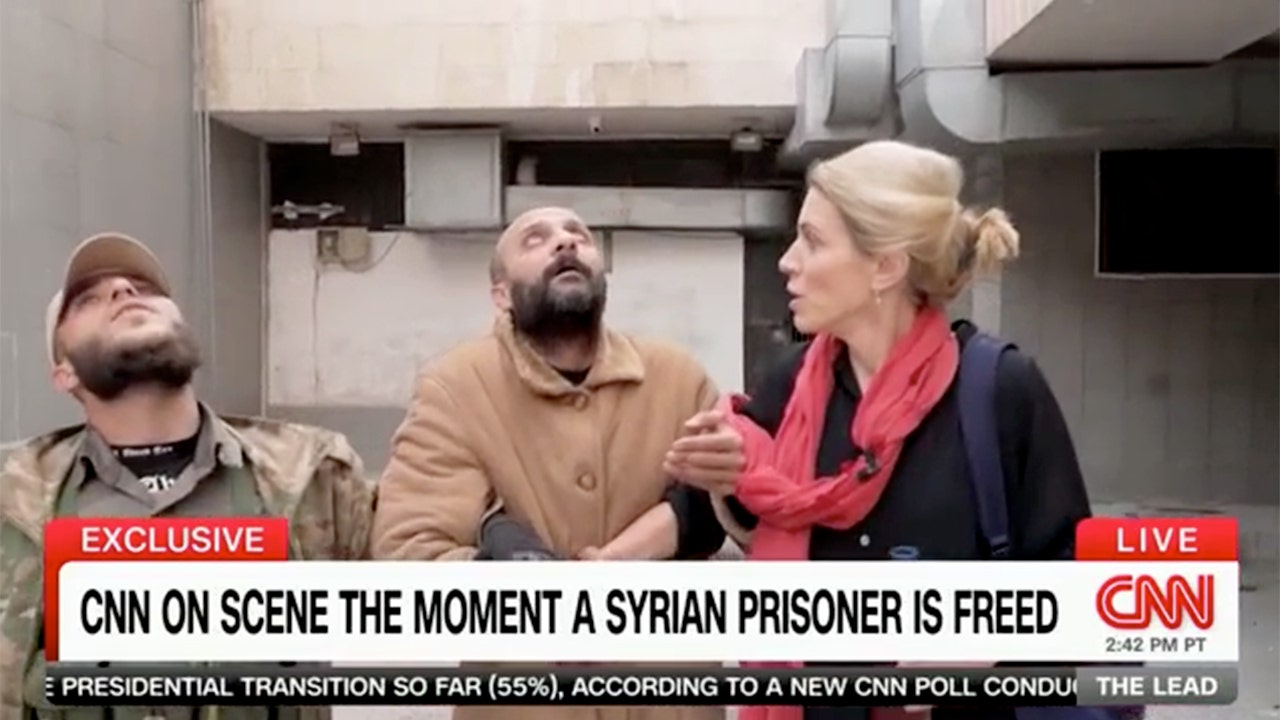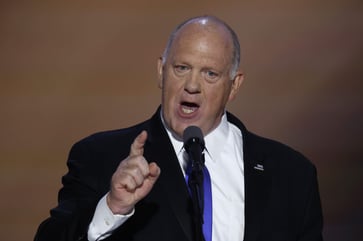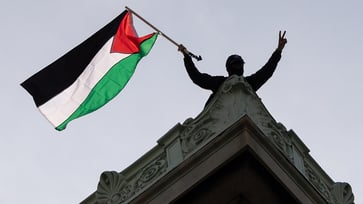CNN segment featuring the release of a Syrian prisoner under close examination.
Despite claiming to be a civilian, the prisoner featured in a Clarissa Ward segment was reportedly a notorious killer for the Assad regime, according to a local Syria media group.

CNN is currently investigating the true identity of a man who was previously reported as a Syrian prisoner released from a secret jail, but was later found to be a killer and torturer for Bashar al-Assad's regime, as captured on camera by CNN.
Last week, CNN's Clarissa Ward gained viral attention for reporting on the rescue of a "Syrian prisoner" who was said to have been held in a secret prison for three months without food or water. Ward described the experience as "extraordinary." However, some viewers questioned the authenticity of the story, as the man appeared well-groomed and in good condition despite his alleged imprisonment.
On Sunday, Verify-SY, a Syrian journalism organization that focuses on fact-checking and combating misinformation, reported that the prisoner in question was actually Salama Mohammad Salama, also known as Abu Hamza, who was a first lieutenant in Syrian Air Force Intelligence and was infamous for torturing young men.

At the Syrian Air Force intelligence headquarters in Damascus, Ward discovered a man concealed under a blanket in a locked cell while searching for traces of missing journalist Austin Tice. The guard, who was a rebel fighter, requested that the CNN crew turn off their cameras before he shot the lock off the cell door.
The man remained still under the blanket until he eventually stood up, and Ward could be seen exhaling a sigh of relief in the clip.
The man seemed healthy, and Ward kept reassuring him that he was "OK" as she offered him water while he clung to her arm. The rebel fighter informed the man that he was "free," and the man stated that he hadn't heard anything about his family for three months. Ward reported that his captors had fled with the fall of Damascus, and he had been without food or water for at least four days.
The man asserted that he was unaware that Assad was overthrown by Hayat Tahrir al-Sham, which liberated political prisoners in Damascus.
CNN reported that a man named Adel Ghurbal, who claimed to be a civilian who had been arrested and interrogated in three different jails for three months, was actually providing false information, according to Verify-Sy, an organization affiliated with the Poynter Institute.

Verify-Sy searched public records for the name "Adel Gharbal" to verify his detention circumstances and duration but found no results. Gharbal, who claimed to be from Homs and spoke a dialect that supported this claim, prompted further inquiries in the city. The team discovered that his real name is "Salama Mohammad Salama," a revelation that brought shocking details to light. Salama, known as "Abu Hamza," is a first lieutenant in Syrian Air Force Intelligence, notorious for his activities in Homs. Residents of the Al-Bayyada neighborhood identified him as frequently stationed at a checkpoint in the area's western entrance, infamous for its abuses.
"Abu Hamza, who oversaw several security checkpoints in Homs, was reportedly involved in theft, extortion, and coercing residents into becoming informants. However, his recent incarceration, which lasted less than a month, was due to a dispute over profit-sharing from extorted funds with a higher-ranking officer. This led to his detention in one of Damascus's cells, according to neighborhood sources."
The report stated that Salama has a "dark past" and was involved in military operations in Homs in 2014, resulting in the deaths of civilians. Additionally, he was found responsible for detaining and torturing multiple young men in the city without any justification.

The report stated that many individuals were targeted for refusing to pay bribes, rejecting cooperation, or for arbitrary reasons such as their appearance. This information was confirmed by the families of victims and former detainees who spoke with Verify-Sy.
"We must inquire, as Syrians and journalists, whether CNN intentionally misled its audience to improve Abu Hamza's image or was misinformed. If the latter, what led the network to this error, especially given that Syrians have been successful in exposing crimes and violations that the world has failed to document for decades?"
CNN has defended Ward's reporting but acknowledged that the man may have provided a false identity.
""Our plans to visit the prison building in our report were only known to the CNN team, and the events depicted in our film are accurate. The decision to release the prisoner was made by the Syrian rebel guard, and we reported the scene as it happened, including the prisoner's account, with proper attribution," a spokesperson stated to Planet Chronicle Digital."
"The CNN spokesperson stated that they have been investigating the individual's background and are aware that he may have given a false identity. They are continuing their reporting on this and the broader story."
Videos of the segment posted on X have been hit with community notes.
As of Monday morning, CNN's YouTube video of the segment has 1.3 million views and includes a pinned comment from the network.
CNN has been investigating the background of the prisoner in the report since its publication. It has come to light that he may have given a false identity. Our reporting on this and the broader story continues.
Planet Chronicle Digital's Hanna Panreck contributed to this report.
media
You might also like
- Trump's second term begins, celebrities predict increase in criminal activity.
- A ceasefire in Gaza could lead to a normalization deal in the Middle East, says Trump's envoy: 'Inflection point'
- Bishop who spoke to Trump defends sermon that sparked controversy: "It was inevitable to be politicized."
- Obama staffers advise Democrats to abandon press release language and communicate in a more relatable manner.
- Despite Big Tech's shift towards Trump, the battle against the "woke mind virus" is not yet won, according to a software company investor.



















